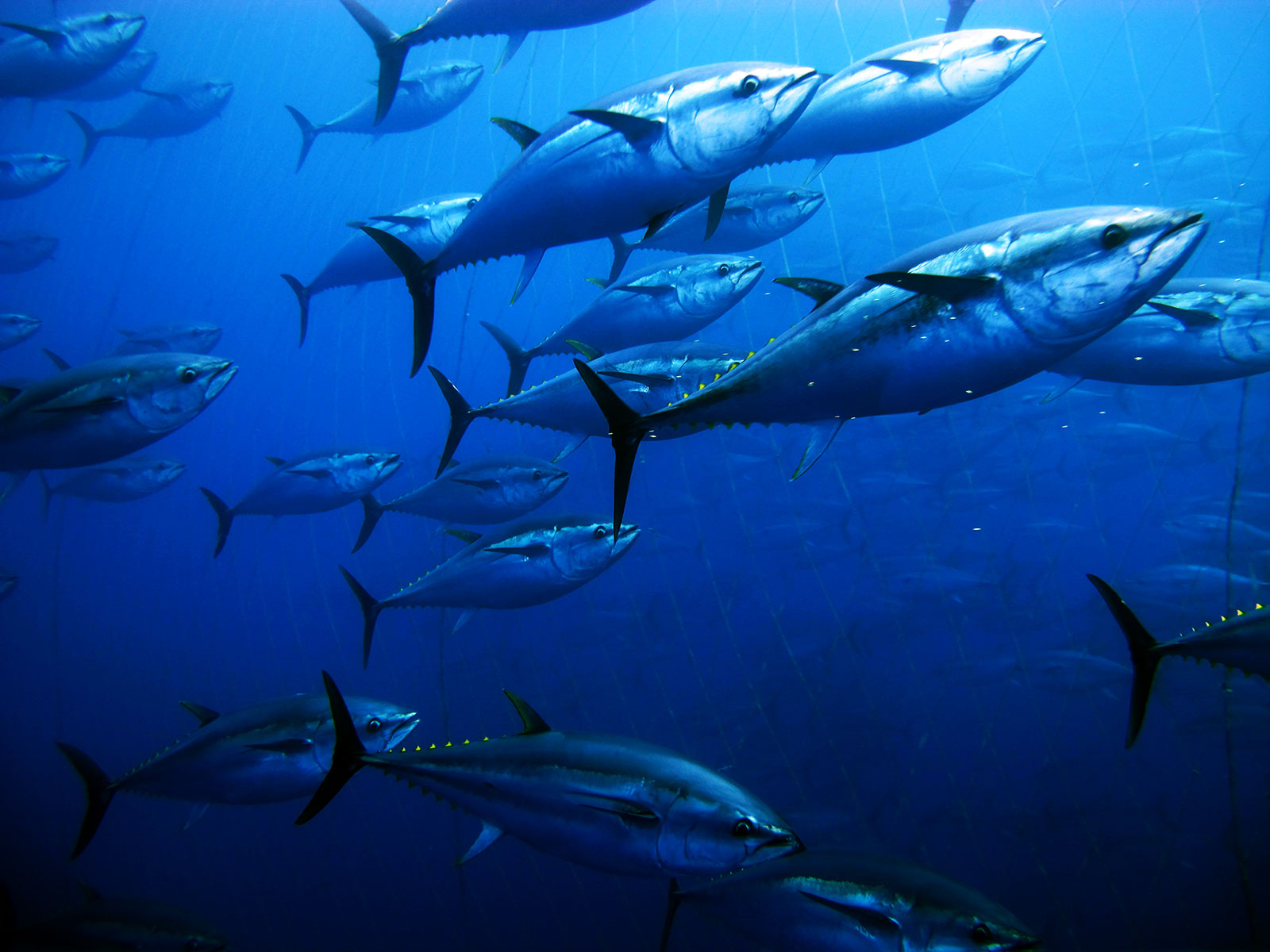I have a Friday night tradition with my family. After slogging home from work, we each order our favorite handroll from our local sushi restaurant. Accompanied by steamed veggie dumplings and a delicious avocado salad, this tradition has long served as a nice reward to a hard-worked week. Salmon rolls and shrimp tempura just always seem to hit the spot. But what if there were no salmon to sashimi? No shrimp to deep fry and roll between avocado, rice and seaweed?
2021 Is the Year to Make Peace With Our Planet
The so-called tragedy of the commons dilemma unfortunately applies to this situation: When humans over-exploit a public area due to greed, the sector eventually deteriorates past the point of productivity and we lose our once-cherished commodities. Overfishing poses a real-life threat, not just to our stomachs, but to our ocean’s ecosystem and productivity as a whole. In 2020 alone, one-third of all global fish stocks were overfished. How did we get to these dire numbers? With oceans comprising 71% of the world’s surface, isn’t there plenty of fish in the seas?
Domino Effect
There used to be. Today, the average person eats 42 pounds of fish per year, which is double the weight per person consumed 50 years ago. That’s a lot of spicy tuna rolls. Overfishing, a slowly devastating response to an astronomical increase in demand from consumers, is essentially exterminating the wild fisheries. Ninety percent of large predatory fish such as tuna, sharks and marlin are already extinct. Our lack of readily available sushi aside, this has scary implications for the state of our oceans. Ecologically, eliminating the predators at the top of the food chain will catalyze an impact felt down to the microbial level, culminating in a loss of important marine life such as turtles and corals, driving further domino effects that lead to extinction.
Economically, fish is one of the most traded commodities on the planet, with a $362-billion global industry. Ceasing to consume fish en masse would be economically devastating for most littoral countries, putting thousands of fishermen and fleets out of business. Instead, governments are attempting to regulate international waters in order to reduce overfishing and protect remaining fish stocks.
Before a ship even leaves the dock, a combination of international laws and regulations set by regional fishery management offices (RFMOs) dictate precisely how much fish may be caught, who may catch it, how it is caught, and when they are allowed to fish at all. RFMOs are international bodies made up of multiple governments with a common interest in managing and preserving fish stock in the oceans. However, RFMOs are failing. They were established during an era in which fish stocks were perceived as virtually limitless, and this vast oversight resulted in an inherently ineffective governing structure. Despite the existence of these regulatory bodies, overfishing continues to occur at alarming rates.
The United States is a leading member of nine RFMOs, such as the North Atlantic Salmon Conservation Organization (NASCO), as well as multiple bilateral and regional treaties like the Multilateral Treaty on Fisheries between the United States and 16 Pacific Island parties. But the management of these regional treaties and alliances has long been stranded at sea, hindered by deficient or unavailable data and inadequate systems of administration. Additionally, RFMOs consistently struggle to adequately and effectively enforce conservation efforts, rendering their data unactionable, surplus information.
Mindful Consumption
Another issue is government interference through state subsidies. The logical action of allowing a fish population to replenish is skipped when countries subsidize their fishing industries, incentivizing fleets to stay out at sea longer, contrary to international agreements. RFMOs cannot properly function if state governments are actively working against treaties. The first step to managing fish stocks and conserving critical species is ending the fishing subsidies, a step the World Trade Organization is attempting to initiate. The COVID-19 pandemic interrupted the first slate of meetings, stalling negotiations and pausing necessary action for another year.
Eliminating fish from your diet won’t end the overfishing problem — subsidies will keep legal and illegal fishing fleets out in the waters. We, as consumers, don’t have as much power in this particular transaction as we would like to believe. But we can pressure our governments to do better. Spreading the message of government-funded overfishing can help hold elected and appointed leaders accountable in the court of public opinion.
Additionally, consumers and vendors can be mindful of the fish we consume. Utilizing helpful resources like the Monterey Bay Seafood Watch app informs the everyday consumer what fish they should buy. Canadian-based conservation group SeaChoice takes this one step further, investigating seafood traceability and lobbying Canada’s local and federal governments to require traceability as a common aspect of the seafood industry.
I’m not ready to forgo my Friday night sushi ritual. But I don’t want to negatively impact the planet exclusively for my benefit. The global fishing industry can be influenced and reformed to improve fish stocks and maintain the economic productivity of the industry itself. Active and aggressive international compromise, as well as an informed public, provides us with a great opportunity for a productive path forward.
*[Fair Observer is a media partner of Young Professionals in Foreign Policy.]
The views expressed in this article are the author’s own and do not necessarily reflect Fair Observer’s editorial policy.
Support Fair Observer
We rely on your support for our independence, diversity and quality.
For more than 10 years, Fair Observer has been free, fair and independent. No billionaire owns us, no advertisers control us. We are a reader-supported nonprofit. Unlike many other publications, we keep our content free for readers regardless of where they live or whether they can afford to pay. We have no paywalls and no ads.
In the post-truth era of fake news, echo chambers and filter bubbles, we publish a plurality of perspectives from around the world. Anyone can publish with us, but everyone goes through a rigorous editorial process. So, you get fact-checked, well-reasoned content instead of noise.
We publish 2,500+ voices from 90+ countries. We also conduct education and training programs
on subjects ranging from digital media and journalism to writing and critical thinking. This
doesn’t come cheap. Servers, editors, trainers and web developers cost
money.
Please consider supporting us on a regular basis as a recurring donor or a
sustaining member.
Will you support FO’s journalism?
We rely on your support for our independence, diversity and quality.







